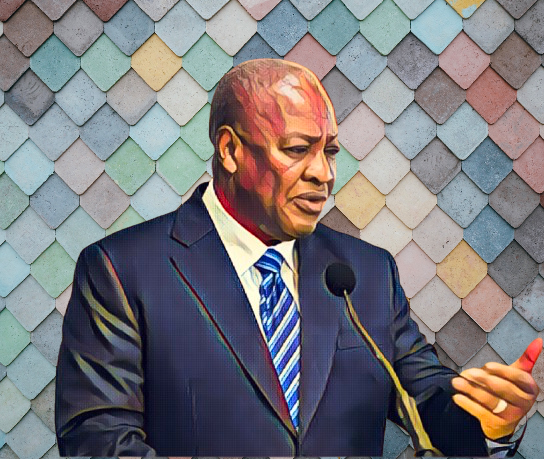KEY POINTS
- President Mahama has promised to reduce borrowing costs and improve access to capital through financial sector reforms and a new venture capital fund focused on youth and women.
- He announced the government’s commitment to a 24-Hour Economy strategy, digital infrastructure expansion, and vocational training aligned with job market needs.
- Mahama emphasized rule of law, political stability, and strong public-private partnerships as key to sustainable economic transformation in Ghana.
Ghana’s President, John Dramani Mahama, has reaffirmed his government’s commitment to revitalizing the economy by lowering the cost of borrowing and realigning financial sector priorities to support entrepreneurship and industrial growth.
Speaking at the Second Edition of the Kwahu Business Forum in Mpraeso, Eastern Region, on Saturday, Mahama unveiled a series of reforms aimed at making access to capital easier for businesses and startups.
The President stated that the government will reform credit systems and promote blended finance instruments, while simultaneously retooling the financial sector to serve the real economy. “We are determined to reduce the cost of borrowing to stimulate economic growth and strengthen businesses and industries,” he said.
Held under the theme “The Future of Business: The Role of the Financial Sector,” the Kwahu Business Forum is an initiative created by President Mahama to promote dialogue and collaboration among entrepreneurs, industrialists, investors, and start-ups.
Ghana Business News reports that the forum also aims to foster innovation, unlock capital, and offer strategic pathways for sustainable enterprise in Ghana, particularly in the manufacturing and agro-processing sectors.
Financial reforms, youth empowerment, and 24-hour economy at the heart of the agenda for Mahama
As part of the administration’s new financial vision, Mahama announced plans to launch a national venture capital fund, specifically targeting youth- and women-led enterprises. He also committed to implementing regulatory reforms to incentivize banks and financial institutions to lend to productive sectors.
“No economy can grow if its people remain excluded from formal financial systems,” Mahama declared. “We will work with banks, fintechs, and mobile money operators to expand access to financial services, particularly in rural and underserved communities.”
The President emphasized that Ghana’s economic future lies in embracing digital, green, and inclusive development. He underscored the importance of digital infrastructure and announced that the government would pursue a 24-Hour Economy strategy to boost productivity, generate employment, and expand access to services.
“We are creating the conditions—reliable electricity, infrastructure, and logistics—for businesses to operate around the clock,” he said, adding that this initiative will be supported by a Jobs and Skills Compact—a collaborative framework involving government, academia, and industry to align education and vocational training with labor market needs.
In a move aimed at stemming urban migration, Mahama articulated a vision where economic opportunities are available in smaller communities across Ghana. “Our vision is a Ghana where no young person needs to leave their hometown in search of opportunity. Where communities like Mpraeso, Nkawkaw, and Abetifi become hubs of innovation, enterprise, and decent work,” he said.
Mahama stressed that sustainable economic transformation goes beyond financial policies. It requires strong institutions, rule of law, and political stability. “To truly enable business growth, we must go beyond economic policy. It requires a firm commitment to rule of law, political stability, and respect for contracts and property rights,” he stated.
He further emphasized that the public service must operate as a partner to the private sector, not merely as a tax collector. “We need a responsive, corruption-free public service that sees the private sector as a partner in national development,” he added.
The President described the Kwahu Business Forum not just as a platform for policy discussion but as a call to action for building a competitive and inclusive economy. “The future of Ghana will not be determined by government alone. It will be shaped by partnerships—between state and private sector, between finance and innovation, and between leadership and the people,” Mahama noted.
In his address, Akyemfour Asiedu Agyemang III, Kwahu Abetifihene and Adontenhene of the Kwahu Traditional Area, commended the forum and appealed to the President to complete a stalled hospital project in Abetifi, initiated by Mahama’s previous administration but abandoned since 2017.




